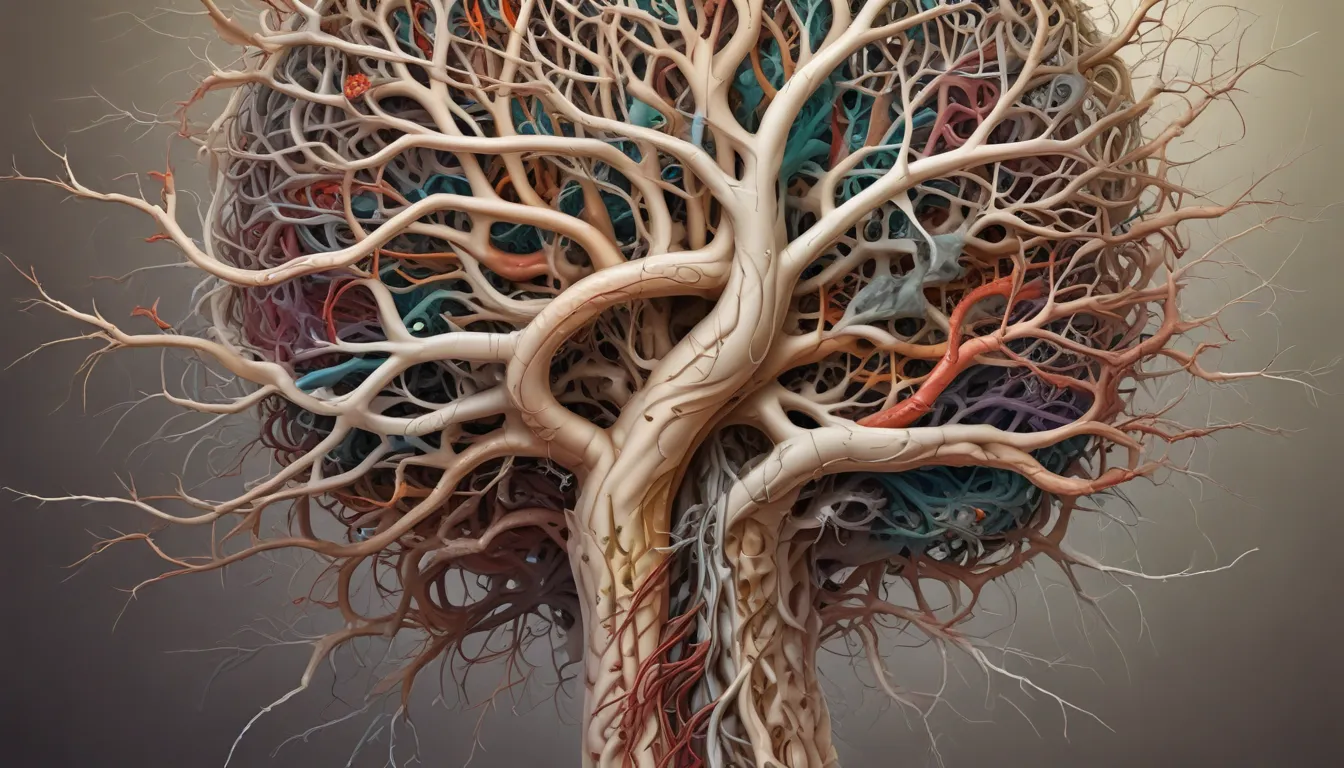A Note About Images: The images used in our articles are for illustration purposes only and may not exactly match the content. They are meant to engage readers, but the text should be relied upon for accurate information.
The central nervous system (CNS) stands as a testament to the marvels of biological engineering, orchestrating the body’s essential functions with precision and efficiency. Comprising the brain and spinal cord, this intricate network acts as the command center, processing sensory input and directing motor responses. Delving into the complexities of the CNS not only enlightens us but also underscores the significance of understanding human physiology and behavior.
The Central Nervous System: A Closer Look
The Central Nervous System, encompassing the brain and spinal cord, forms the cornerstone of human anatomy. The brain, weighing approximately 3 pounds, governs all bodily functions, including thoughts, emotions, and actions. By processing sensory information, it enables individuals to perceive the world through sight, hearing, taste, smell, and touch. On the other hand, the spinal cord, extending from the brain down the back, acts as a conduit for transmitting messages, coordinating movement, interpreting sensory input, and regulating critical bodily functions.
Safeguarding the Central Nervous System
To protect this vital system, the brain is encased within the skull, while the spinal cord finds refuge in the spinal column consisting of 33 vertebrae. These protective structures shield the CNS from external harm, ensuring its safety and optimal functioning.
The Neuronal Wonders of the Brain
A staggering 86 billion neurons populate the brain, driving its remarkable processing power and adaptability. Neurons form intricate networks that communicate through electrical and chemical signals, facilitating the brain’s ability to process a vast array of information.
The Brain’s Energy Demands
Despite comprising only 2% of the body’s weight, the brain consumes a staggering 20% of the body’s total energy. This high energy demand highlights the critical role the brain plays in regulating bodily functions and processing information efficiently.
Emotions and Behaviors: The Brain’s Domain
The brain serves as the nexus for processing emotions and influencing behavioral responses. It orchestrates a myriad of emotions, ranging from joy and love to fear and sadness, dictating appropriate behavioral reactions.
The Spinal Cord as a Communication Bridge
Functioning as the primary pathway for transmitting signals between the brain and the peripheral nervous system, the spinal cord plays a pivotal role in coordinating movement and relaying sensory information.
The Brain’s Adaptive Nature
The brain’s remarkable plasticity enables it to learn new information, acquire skills, and store memories. This adaptability forms the foundation for lifelong learning and cognitive development.
Disorders and Injuries: Threats to the CNS
Various conditions, including Alzheimer’s disease, Parkinson’s disease, multiple sclerosis, and spinal cord injuries, pose significant threats to the Central Nervous System, leading to cognitive, motor, and sensory impairments.
Advancements Through Central Nervous System Research
Continued exploration of the CNS by researchers and medical professionals holds the key to developing innovative treatments for neurological disorders and unraveling the complexities of human cognition and behavior.
The Involuntary Functions Orchestrated by the CNS
In addition to regulating voluntary movements, the Central Nervous System oversees involuntary functions such as breathing, heart rate, and digestion, ensuring the seamless operation of the body.
The Ever-Evolving Nature of CNS Research
The intricate and beguiling Central Nervous System remains a focal point of scientific inquiry, driving ongoing discoveries and insights into brain function, neurological disorders, and potential treatment avenues.
Conclusion: Unlocking the Wonders of the Central Nervous System
The central nervous system stands as a testament to the complexities and marvels of human physiology. From regulating essential bodily functions to shaping emotions and thoughts, the CNS plays an indispensable role in our daily lives. Embracing the fascinating facts about this vital system offers a deeper appreciation for its significance and the intricacies of the human body.
FAQs About the Central Nervous System
-
What are the main components of the central nervous system? The central nervous system comprises the brain and spinal cord, acting as the body’s command center.
-
How can I maintain the health of my central nervous system? Maintaining a healthy lifestyle through regular exercise, a balanced diet, sufficient sleep, stress management, and engaging in brain-stimulating activities supports the well-being of the CNS.
Embark on a journey through the wonders of the central nervous system, exploring its intricate mechanisms, vulnerabilities, and endless possibilities for research and discovery. Delve deeper into the realm of neurological disorders, the peripheral nervous system, and the intriguing subarachnoid space to expand your understanding of the human body’s intricate design. As you venture further into the world of the nervous system, may your curiosity be piqued, and your appreciation for this remarkable biological network grow.






